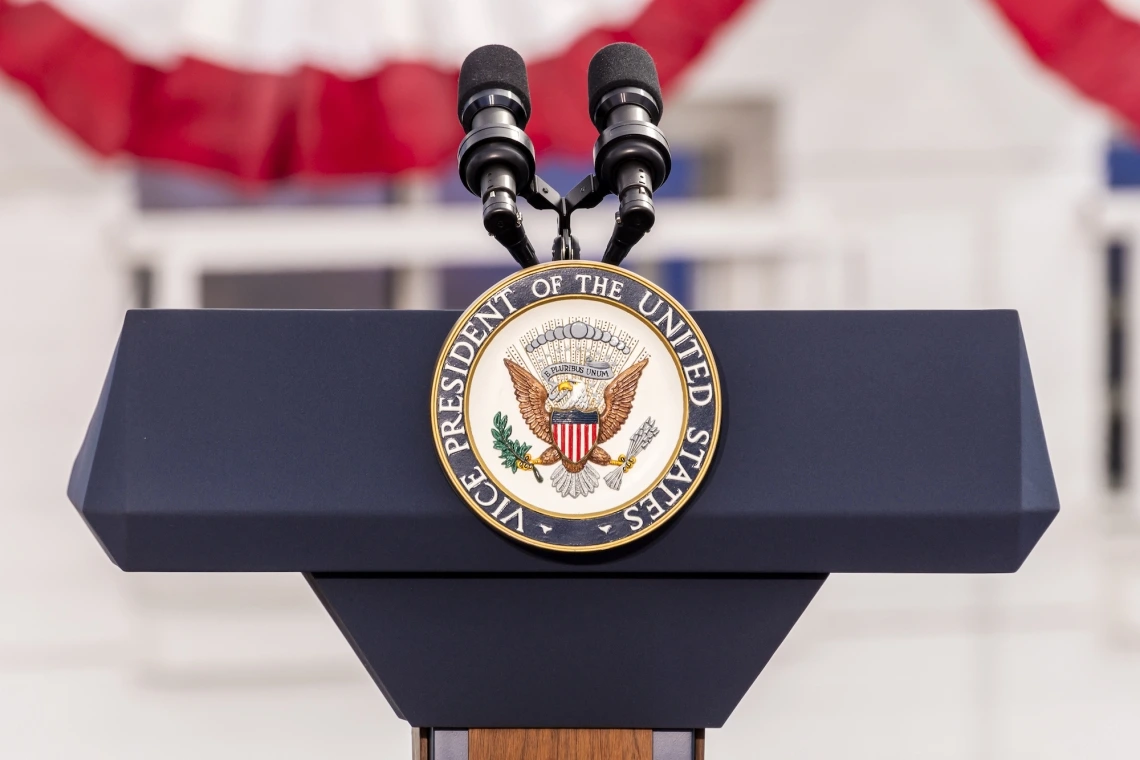Does a VP Pick Change the Race? Probably Not, UArizona Expert Says

Joe Biden on Tuesday announced Kamala Harris as his running mate for the 2020 presidential election. But what impact does a vice presidential selection really have on a race? And how has the selection process changed through history?
Barbara Norrander, a professor in the School of Government and Public Policy in the College of Social and Behavioral Sciences, studies elections, public opinion and political parties.
Norrander discussed the implications that come with selecting a running mate, why presidential nominees have gotten to choose their vice presidents only since the mid-20th century, and what will be different about the presidential race between now and Nov. 3 with Harris, a U.S. senator from California, now on the Democratic ticket.
Q: What are your main takeaways from Biden's selection of Harris as his running mate?
A: He picked someone who appeals to various components of the Democratic party. So, obviously, she'll appeal to African Americans, she'll appeal to women. But she also appeals kind of across the board. She's not really out of step with the party on any particular issues. It's also kind of a conventional pick because she is a senator, and that's the typical vice presidential candidate. It shows that she has qualifications, that she has experience in elections and a variety of other things that would help in the campaign and in the future if they win the election.
Q: How much does a running mate really matter? Has it ever been a game changer in an election?
A: The political science research says it doesn't matter very much. People tend to focus on the top of the ticket. There used to be some notion that the vice presidential candidate could help in their home state, but that doesn't really apply in this case because California would have gone for Biden most likely anyway. So, it's more about perhaps mobilizing Democratic voters who would be a little bit more enthusiastic because of the vice presidential candidate, but it's not going to change people's minds to switch to Biden because he chose Harris.
Q: What's changed about the way nominees choose their running mates in presidential elections?
A: If we go back to the 1800s, the conventions on their own chose the president and on their own chose the vice president. So, it wasn't that the presidential nominee could expect that they would choose the vice presidential nominee. The conventions would meet and there wasn't really any information about who the public supported because there were no presidential primaries and no public opinion polls. It was basically the delegates at the convention negotiating and figuring out who would be supportive.
When you get into the 1900s, there are some cases where the presidential nominee had some influence over who became the vice president, but there are also cases where other parts of the party had more influence over who became the vice presidential nominee. So, it wasn't until about the 1960s that you could always expect that the presidential nominee would have control or influence over who would be the vice president.
In terms of how we choose vice presidents today, the turning point is actually 1976, because with the increase in primaries in the early '70s and delegates being selected to be committed to candidates, you had a new system where we would know who would be the presumptive presidential nominee several months before the convention. So that allowed these presumptive nominees to start vetting potential vice presidents. Jimmy Carter was the first to have that opportunity. He brought in a number of people to see how they got along in terms of issues and personalities. So, the idea that you would have a presumptive nominee having time to vet potential candidates really dates to 1976.
Q: Biden and Harris clashed pretty hard during the primary campaign, notably during a debate in June 2019. How do those differences come into play now that they're running mates?
A: The primary phase is candidates running within the party, and they have slightly different positions trying to win supportive voters. But in the general election, the idea is that the party comes together. You can see some of that already with a variety of different individuals supporting Biden after he became the presumptive nominee. So, the idea is that the party starts to focus on unifying rather than on the division. Typically, that's one of the main roles of the convention is to unify the party and stress the qualities of the presidential candidate and the vice presidential candidate. I'm not sure how well virtual conventions (this year) are going to do that. But there's a difference between the primary phase, where you see the nuanced differences within the party, and then, in the general election, coming together against the opposite party.
Q: What changes can voters expect to see from the Biden and Trump campaigns now that this much-awaited decision has been made?
A: Traditionally, the vice presidential nominee can act as sort of a surrogate for the presidential nominee and go to some of the states that the presidential nominee doesn't have time to go to. Obviously, again, that's not going to work as well this year as in the past. You're going to see some attempts to attack Harris the same way that you see the opposite party attack the presidential candidate, trying to put a different kind of perspective on them. So, it's going to be something where you have some sort of team effort in terms of appealing to different groups in the party and perhaps trying to convince some independent voters to support the party.

